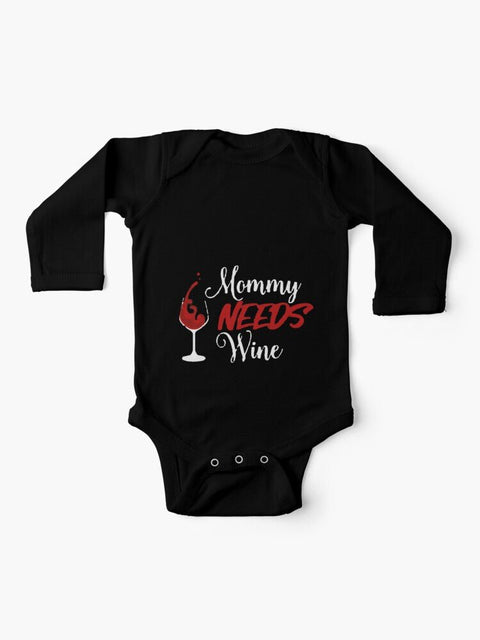In the whirlwind world of modern motherhood, where every day brings a new challenge and every milestone comes with its own set of worries, it's no surprise that many moms find themselves reaching for a glass of wine at the end of the day(respect to all the mom's out there from my maleness). What might have started as a simple act of relaxation has evolved into what is commonly referred to as "mommy wine culture" – a dynamic where wine consumption becomes intertwined with the daily struggles and triumphs of motherhood.
At first glance, mommy wine culture might seem harmless – just a harmless meme shared on social media or a cheeky wine glass with "Mommy's Sippy Cup" etched on it. I love the onesies that read "The Reason Mommy Drinks." But peel back the layers, and you'll find a complex web of societal norms, marketing strategies, and coping mechanisms that have contributed to the normalization of alcohol consumption among mothers.
One of the driving forces behind mommy wine culture is the immense pressure placed on mothers to be perfect – to juggle career, family, and personal well-being effortlessly. In a society that celebrates busyness and productivity, moms often feel like they have to do it all and do it flawlessly. Enter wine – a socially acceptable way to unwind and temporarily escape the pressures of motherhood. This is thoroughly examined in "It's Not About The Wine: The Loaded Truth Behind Mommy Wine Culture" by Celeste Yvonne.
But the public health concern is that what starts as an occasional indulgence can quickly spiral into a dependence. Studies have shown that the stressors of motherhood, coupled with societal expectations, can increase the risk of alcohol misuse among women. What's more, the normalization of mommy wine culture can make it difficult for moms to recognize when their drinking habits have become problematic. The ubiquity of must-have tongue-in-cheek onesies across social media really do not help.
Another concerning aspect of mommy wine culture is its portrayal in popular media and marketing. From Instagram influencers sharing #WineWednesday posts to companies selling "mommy juice" merchandise, the message is clear: wine is the solution to all of motherhood's woes. But behind the catchy slogans and cute graphics lies a troubling reality – the glamorization of alcohol as a coping mechanism for stress and anxiety.
Moreover, mommy wine culture often glosses over the fact that alcohol consumption can have serious health consequences, both in the short and long term. From impaired judgment and decreased cognitive function to an increased risk of addiction and chronic diseases, the effects of alcohol misuse can be far-reaching and devastating – not just for moms, but for their families as well.
So, what can be done to address mommy wine culture and its implications? Again, in my maleness, this is a conundrum. But the studies suggest a national conversation about the pressures of motherhood and the unhealthy coping mechanisms that many moms turn to as a result. By normalizing discussions around mental health and promoting alternative ways to manage stress, we can help moms feel empowered to seek support when they need it most.
Additionally, we must challenge the societal norms and marketing tactics that perpetuate the myth of the "wine mom." This means holding companies accountable for their portrayal of alcohol consumption and advocating for more responsible advertising practices. It also means redefining what it means to be a "good" mom – one who prioritizes self-care and well-being without relying on alcohol.
Ultimately, mommy wine culture is a symptom of a larger issue – the unrealistic expectations placed on mothers and the lack of support systems in place to help them navigate the challenges of parenthood. By addressing these underlying issues and promoting healthier coping mechanisms, we can create a world where moms feel empowered to embrace motherhood on their own terms – without the need for a glass of wine to take the edge off. Hopefully the irony of this advocacy coming from a wine retailer does not hinder the message.




Comentarios (0)
No hay comentarios todavía. Sé el primero en comentar.